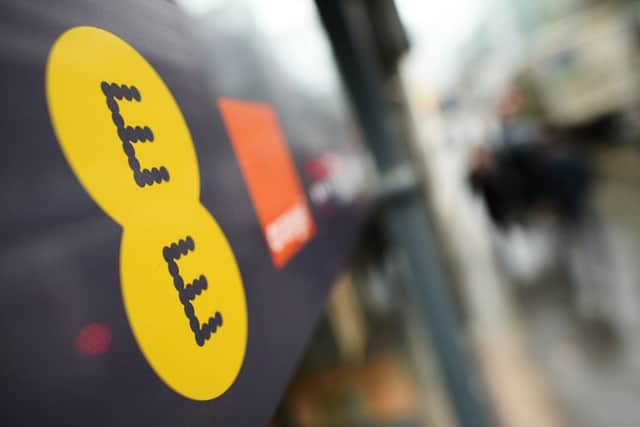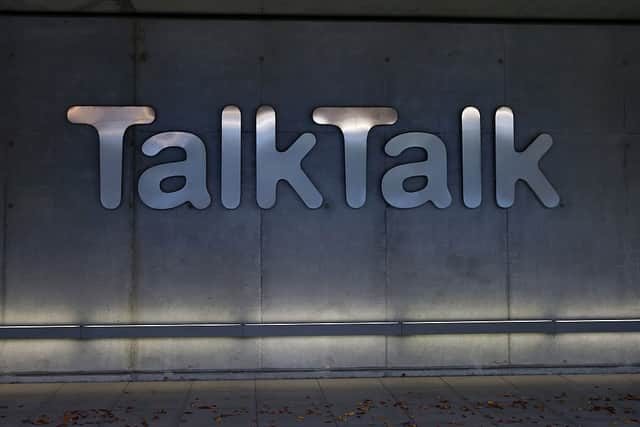Mobile phone and broadband deals: April bill hike explained - how to find best contracts amid cost crisis
This article contains affiliate links. We may earn a small commission on items purchased through this article, but that does not affect our editorial judgement.
and live on Freeview channel 276
While inflation is on course to come down over the course of 2023, the cost of living crisis looks set for a grim new chapter in April.
Although the annual rate of price rises dropped to 10.1% in January, it looks set for a potential spike in the new financial year as a result of several bill increases. Chief among these will be the partial removal of government support for the energy price guarantee, which could see electricity and gas bills soar by around 20%.
Advertisement
Hide AdAdvertisement
Hide AdWater bills and council tax are also set for rises. These uplifts are coming at the same time as the Bank of England has hiked interest rates, which has significantly increased the cost of mortgage repayments.
Two bill increases that are also going to squeeze household budgets from the spring include broadband and mobile deals. Linked to the Office for National Statistics’s (ONS’s) measures of inflation, internet and smartphone costs are on course for a hefty spike in April.
So, how could your broadband and mobile deals change - and how do providers decide what to increase bills by?
How do providers decide bill increases?
While you may not have noticed it before, most mobile and broadband providers will hike your bills every spring.
Advertisement
Hide AdAdvertisement
Hide AdThe reason why you may not have noticed this change is that the amount your bill goes up by is tied to inflation, and inflation has not been particularly high over the last 30 years. Indeed, the highs we have seen over the past 12 months have not been seen since the early 1980s - well before smartphones and the internet (as we know it today) existed.
Typically, providers set their bills by taking December’s Consumer Prices Index (CPI) rate of inflation and adding 3.9 percentage points to it. If inflation is ever negative, only the 3.9% gets added. Some - including O2 and Virgin Mobile (which are merging) - hike bills in line with the Retail Prices Index (RPI) which usually tracks slightly above the CPI as it is calculated differently.


The reason why the 3.9 percentage points get added is to cover providers’ costs. According to EE, this April’s 14.4% hike will allow it to cover the price of its energy bills (which it says have jumped 80% over the last 12 months), and the cost of supplying its Home Hubs, whose price has rocketed by a fifth since 2021. The additional percentage points also allow companies to increase their investment in their services, EE says.
Telecoms regulator Ofcom is reviewing rules around mid-contract price hikes as a result of concerns about how the rises are communicated to customers. Most broadband and mobile deals appear to fix in a particular monthly bill total over a fixed period, but they will hide the annual rise in the contract small print.
How much are bills rising in April?
Advertisement
Hide AdAdvertisement
Hide AdNationalWorld has listed what’s happening at the UK’s biggest broadband and mobile companies, below. Most will also round up your bills by two decimal places and some of the hikes will not apply to customers on specific tariffs for people who receive state support.
But not all of them follow the same price hike routines, so we have provided a quick summary for each individual provider.
BT
BT will be hiking bills by December’s CPI (10.5%) plus an extra 3.9 percentage points from 1 April. It means they will rise by 14.4% - the equivalent of £1 a week - for the average billpayer, BT says.
The hike will apply to almost all deals, including BT Mobile. However, line rental will not be affected by the rise.
Sky broadband and Sky Mobile
Advertisement
Hide AdAdvertisement
Hide AdSky broadband customers will see their bills rise by 8.1% from 1 April - equivalent to £67.20 a year, on average (£5.60 a month). If you’re a customer, it will be corresponding with you about the changes over the coming weeks.
Out-of-contract Sky Mobile customers saw their bills go up for the first time in five years in February. The change amounted to an extra 9% on a typical bill.


EE
For the average EE customer, a 14.4% bill hike amounting to £1 a week - or £52 a year - will come into effect from 1 April. This rise breaks down into December’s CPI (10.5%) plus three percentage points. The provider has a bill calculator on its website that will give you a rough idea of how much more you will be paying, and will inform customers of exactly how their bills will change before early March.
O2 and Virgin Mobile
O2 and Virgin Mobile customers will see their bills go up 17.3% as the providers use January’s RPI inflation rate (13.4%) and add 3.9%. The change will not apply to the device element of your contract, so the providers say the average customer will technically see a smaller rise of 10% overall. Pay as you go customers will be unaffected.
Advertisement
Hide AdAdvertisement
Hide AdMeanwhile, broadband provider Virgin Media is hiking prices by 13.8% on average, which will add around £80 to annual bills.


Vodafone
Vodafone is yet to confirm its price changes for April. It usually uses the RPI measure of inflation, so its customers are likely to see a 17.3% hike to their bills.
Three
Three mobile and broadband customers will see their bills rise by CPI plus 3.9% in their April statement. It means someone paying £30 a month is likely to see their monthly charge rise to £34.32.
However, the change only applies to people who joined or upgraded with the network after 1 November 2022. The Three website has a calculator that will help you to see how your bill will be altered.
Plusnet
Advertisement
Hide AdAdvertisement
Hide AdBroadband provider Plusnet has taken the December CPI plus 3.9% approach to raising bills for its customers from 1 April. It says the change will add roughly £1 per week to the average bill.
It says it has contacted customers about the change, which may also impact bundle deals.


TalkTalk
TalkTalk is an outlier when it comes to bill increases. It follows a slightly different formula to the other providers, by taking the December CPI but adding 3.7 percentage points rather than 3.9.
It means customers will have a 14.2% hike rather than a 14.4% rise in April. In practice, this will not make a major difference as it will still see a typical bill go up by around 1%.
Tesco Mobile
Advertisement
Hide AdAdvertisement
Hide AdTesco has not announced a price increase as of yet. But in 2022, it pulled a smart move by not raising prices mid-contract and saying other networks had added the UK-wide equivalent of £1 billion to phone bills since 2013.
Whether or not it can pull the same trick again this year remains to be seen. With inflation still close to record highs, it is likely the provider’s costs have risen significantly.
How can you get a good deal for mobile phone and broadband?
While prices are rising, your bills do not necessarily have to go up. If you’re outside the minimum term of your contract, you can jump ship to another supplier without incurring any early exit penalty fees.
The only exceptions are with Sky broadband and Virgin Media broadband, both of whom haven’t written the April hikes into their contracts. So, if they raise your bill you can leave without paying a fee.
Advertisement
Hide AdAdvertisement
Hide AdIf you’re within your minimum term and with another provider, you could still lower your bill by haggling with them. Comparison sites will allow you to see what the cheapest deals are on the market, which you can then use as a bargaining chip. But if the service provider can’t match it, it’s worth considering whether paying the exit fee will leave you better off over the longer term.
Many providers also offer special deals and tariffs for people on universal credit or other state support. They will also work with you if you’re struggling to keep up with your bills payments.
Comment Guidelines
National World encourages reader discussion on our stories. User feedback, insights and back-and-forth exchanges add a rich layer of context to reporting. Please review our Community Guidelines before commenting.
